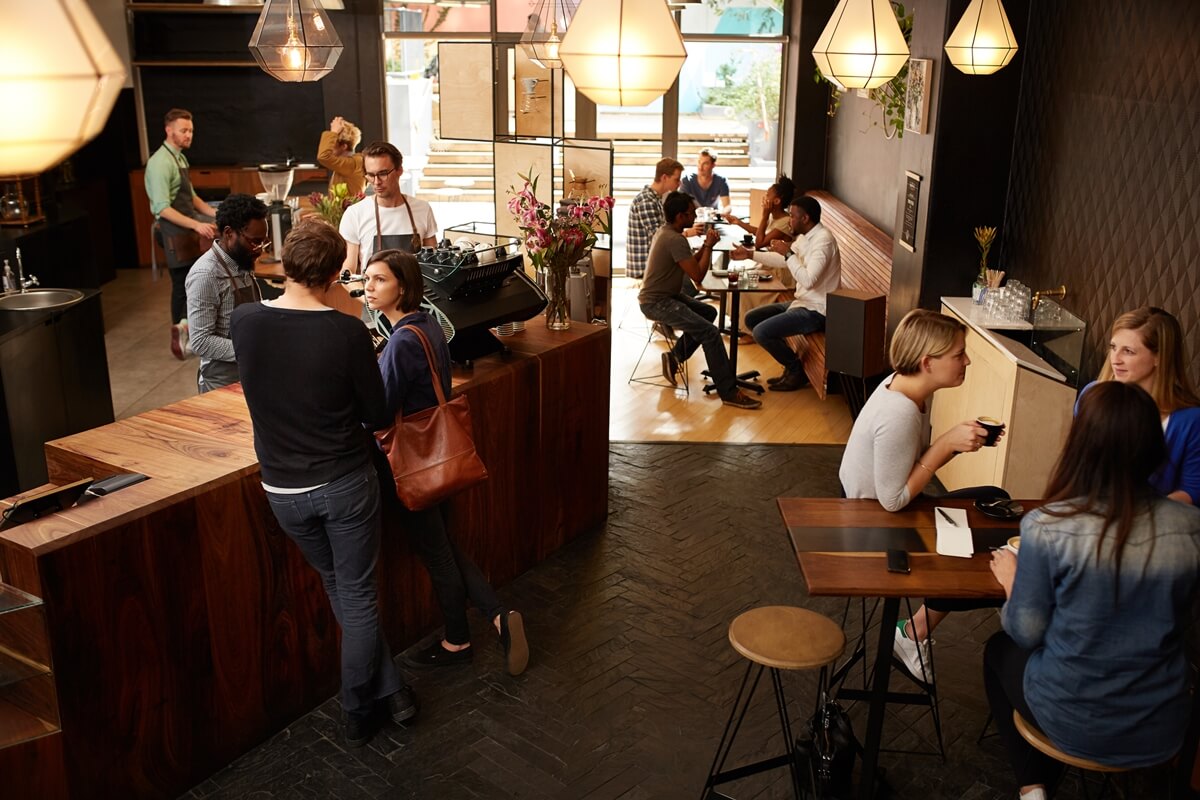
Coffee shops have always been more than just somewhere to grab a quick caffeine shot. They are community focal points, social hubs where people gather to work, rest, and play.
This isn’t a recent trend. Lloyds of London, a financial behemoth, had its humble beginnings as a coffee shop in 1686, evolving into a pivotal shipping and insurance hub.
While it’s unlikely that your local coffee shop will metamorphize into a titan of the global financial sector, it can certainly flourish as a social hub and enjoy the benefits that come with such a status.
The Evolution of Coffee Shops as Social Hubs
Coffee shops have played a central role in our communities and culture for countless centuries. From the cobbled streets of Paris to the bustling piazzas of Italy—the birthplace of espresso—these establishments have stood as sanctuaries of conversation and inspiration. And every so often, they’ve whispered secrets of quiet conspiration.
Lloyds of London may have been unfortunate enough to cease being a coffee shop, but other establishments have been serving coffee and conversation for long enough to become part of the cultural and historical fabric of their city:
- Café Procope, Paris: The birthplace of Parisian coffee culture, frequented by luminaries like Voltaire and Rousseau.
- Caffè Florian, Venice: A timeless gem in Piazza San Marco, playing host to figures from Lord Byron to Marcel Proust.
- Café Central, Vienna: The epicentre of Viennese intellectual life, with regulars like Sigmund Freud and Leon Trotsky.
Of course, we could also mention The Elephant House in Edinburgh, where J.K. Rowling wrote parts of the Harry Potter novels, or Dublin’s own “The Bailey”, where writers like James Joyce and Brendan Behan frequented.
But it isn’t just the great, good, and conspirational that gather in coffee shops. Every corner of the world has its own coffee sanctuaries where every day people come together.
These are places where friendships are forged over frothy cappuccinos, where business ideas are born from the steam of hot espresso, and where communities find common ground in the shared ritual of a morning brew.
The Modern Day Café: More Than Just a Coffee Stop
Coffee shops operate in a competitive market, and elevating a brand above the competition is a challenge. One way to gain a competitive edge is to embrace the “community hub” ethos that coffee shops have historically held.
To truly transform a café into a thriving social hub, several key elements can make a big difference:
- Sustainable Products: Embrace eco-friendly practices by offering compostable coffee cups, cutlery, and plates. This not only reduces the environmental footprint but also resonates with the growing number of eco-conscious consumers.
- Free Wi-Fi: In today’s digital age, providing free and reliable Wi-Fi is almost a necessity. It encourages patrons to spend more time at the café, whether they’re working, studying, or just browsing.
- Community Events: Host regular events like open mics, book clubs, or art exhibitions. This fosters a sense of community and turns the café into a vibrant gathering spot.
- Local Produce: Source ingredients locally, supporting nearby farmers and businesses. This not only ensures freshness but also strengthens community ties.
- Comfortable Seating: Invest in comfortable and varied seating options. From cosy armchairs for relaxed reading to communal tables for group discussions, the ambience plays a crucial role in attracting and retaining patrons.
The most successful coffee shops are more than just a café. They are the cornerstone of their community, a place where ideas, inspiration, and gossip are all exchanged.
Community and Coffee: A Match Made In Heaven
Since the first coffee shops swung their doors open, they have acted as the focal point for communities across the ages. Today’s coffee shop can continue this legacy, evolving into a space where people gather not just for a brew but for connection, conversation, and camaraderie.
Cup Brands products can enhance your café’s role as a community hub. Our sustainable products not only care for the environment but also foster deeper connections among patrons.
